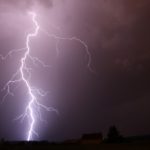French grammar tip: Understanding the Use of ‘Parce que’ vs. ‘Car’
‘Parce que’ and ‘car’ both mean ‘because’ in French, but ‘car’ is more formal and is often used in written language. For example, ‘Je suis resté à la maison parce…
French conjugation tip: The Imperative for Encouragement
The Imperative can be used to encourage or motivate someone to take action. For example, “Courage!” (Be strong!), “Ne lâche pas!” (Don’t give up!), or “Vas-y!” (Go for it!). The…
The French positive thought of the day
En pratiquant l’humilité, nous devenons plus attentifs aux besoins des autres. Cela nous permet de cultiver des relations plus harmonieuses, basées sur le respect et la compréhension mutuelle. By practicing…
French vocabulary tip: French Photography Vocabulary
For photography enthusiasts, knowing the related vocabulary in French can enhance your experience and communication. Important terms include “l’appareil photo” (camera), “le cliché” (snapshot), “la lumière” (light), “le portrait” (portrait),…
French video course: 100% Pronoms Personnels
100% Pronoms Personnels https://www.french4me.net/courses/2571626 To access this course and all the courses of French4me.net, you will need to purchase the Full Access Unlimited: https://www.french4me.net/p/lifetime-access-unlimited
Le cours de français du jour I Vocabulaire | Noms de pays en français
Vocabulaire | Noms de pays en français https://www.french4me.net/courses/125046 Pour accéder à ce cours et à tous les cours qui sont proposés sur French4me.net, vous devrez acheter l’accès à la plateforme:…
5 sentences with “avoir le mal de mer”
Lors de la croisière, elle a eu le mal de mer et a dû rester dans sa cabine. During the cruise, she had seasickness and had to stay in her…
L’info du jour : Education in Belgium
Belgium’s education system, particularly in its French-speaking regions, reflects a strong influence of French educational practices, emphasizing linguistic and cultural education. Le système éducatif de la Belgique, en particulier dans…
French grammar tip: The Role of ‘Avant’ and ‘Après’ in Time Expressions
‘Avant’ means ‘before’ and ‘après’ means ‘after’. These words are commonly used to talk about events in time. For example, ‘Je prends une douche avant de manger’ (I take a…
French conjugation tip: The Past Conditional in Narratives
The Past Conditional (Conditionnel Passé) is often used in narratives to describe what could have happened but didn’t. It adds a layer of reflection or regret. For example, “Elle aurait…
The French positive thought of the day
Chaque minute bien utilisée nous rapproche de nos rêves. Grâce à une bonne gestion du temps, nous optimisons notre énergie et maximisons nos résultats. Every minute well spent brings us…
French vocabulary tip: French Cultural Vocabulary
Understanding French culture involves knowing the vocabulary related to cultural practices and traditions. Key terms include “la fête” (celebration), “la tradition” (tradition), “la coutume” (custom), “le festival” (festival), and “la…





